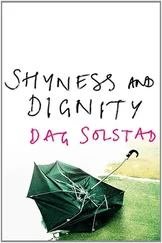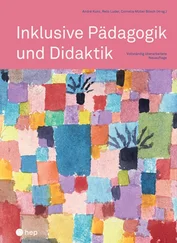And so Bjørn Hansen was discharged. He was wheeled into Dr Lustinvas’s office, where he received a number of signed and stamped documents, which explained in detail his stay in Vilnius Hospital. Then he was driven to the airport. He was wheeled into the departure hall by the two dark-haired nurses. They walked side by side behind the wheelchair, both holding on to the handlebar while they pushed him towards the check-in window. Then one of them checked him in, while the other stood waiting behind the wheelchair. Afterwards they wheeled him towards the passport check and the international departure hall, still side by side, like two sisters, behind him. At the passport check stood a Scandinavian Airlines stewardess waiting for him. The two Lithuanian nurses handed the wheelchair over to this woman, who would now bear responsibility for all further transportation. But before delivering him to the stewardess, they bent down, both of them, first one and then the other, and embraced him, while bursting into tears.
It caught them unawares, both the cool stewardess, who stepped back a little, and Bjørn Hansen, who now slumped over, anxious both about being taken through the passport check and through those long corridors to the plane. But also about what would come afterwards. Meanwhile the stewardess seized the handlebar of the wheelchair, wheeled him through the passport check and through a door, which then closed, and since he sat with his eyes looking straight ahead and couldn’t turn round, he was no longer able to see the two nurses, who stood side by side watching him disappear through the automatic door and into his own world, which they did not even get a glimpse of before the door was closed.
On the plane he was given a seat at the very back, beside a single seat reserved for the crew, where the stewardess sat down, beside him, while holding firmly on to the handlebar of the wheelchair with one hand during the ascent. He shook his head when they brought the trolleys with food and drinks — anyway, it was ‘his’ stewardess who was in charge of serving drinks in this section of the plane. He sat looking straight ahead, hunched up, deep in thought. He was on his way home. He had never been so afraid, and on top of that he was worried that his fear would make him tremble all over. He feared he would not be able to go through with his project. He was sitting up in the air over Europe somewhere. Inside the cramped long body of an aircraft, at the very back. He sat hunched up in a wheelchair, looking glumly straight ahead. When the plane went down for landing, the stewardess sat down in the vacant seat beside him, keeping the same firm hold on the handlebar of the wheelchair. At Kastrup he was handed over to another stewardess for the last lap of the journey, between Copenhagen and Oslo. At Fornebu the personnel of an ambulance from Kongsberg Hospital took over. They were waiting as the stewardess wheeled him through the door to the open lobby, where the buzz of loud Norwegian voices hits you as you come out of the international departure hall, right after customs. He was immediately handed over to two white-clad men.
Spring had arrived in Norway, but it was cool, as he noticed during the short trip from the exit to where the ambulance was parked. It was mid-April, Tuesday of Holy Week, two days before Maundy Thursday, for Easter was late this year. He had been away for eight weeks. The ambulance drove to Kongsberg, via Drammen and Hokksund. Had he not always liked Norwegian landscapes, especially the landscape along the Drammen River, between Drammen and Hokksund, and that between Hokksund and Kongsberg, with its flat fields and steep hills? The two white-clad men sat in the front seat, telling each other what they were doing for the Easter holidays, while Bjørn Hansen sat in the back, in his wheelchair, hunched up as before. When they arrived at the Kongsberg Hospital he was carried out in the wheelchair and taken straight to Dr Schiøtz, who was expecting him.
Dr Schiøtz received him in a manner befitting a practised physician: friendly but distant. There was also a nurse in the office, who assisted him. Among other things, she was helpful in transferring Bjørn Hansen from the wheelchair onto the examination table. My withered legs, Bjørn Hansen thought, remember that. But it was Dr Schiøtz who did the examination, the nurse was never in direct contact with Bjørn Hansen’s body. After the examination Bjørn Hansen was taken up to the X-ray department and Dr Schiøtz went along. The doctor took the X-ray pictures himself, turned Bjørn Hansen over on his stomach without assistance, and afterwards remained behind to wait for the developed pictures, while Bjørn Hansen was wheeled back to Dr Schiøtz’s office. Then he was alone with the nurse, but they did not talk. He lay with his eyes closed, covered by a sheet, until Dr Schiøtz returned with the X-rays in his hand. He looked worried. He waved to the nurse and they helped Bjørn Hansen up from the examination table and back into the wheelchair. My withered legs, Bjørn Hansen thought. Dr Schiøtz sent the nurse out, on the pretext of fetching some documents, so they could be alone, which the nurse understood.
With an expression of concern and in a low, friendly voice brimming with sympathy, Dr Schiøtz told him that the examination he had just undertaken fully confirmed the diagnosis made in Vilnius, a copy of which had been sent to Kongsberg Hospital. Bjørn Hansen, therefore, had to take it like a man, there was nothing else for it. Dr Schiøtz knew it was painful to have to adjust to there being no hope, but it couldn’t be helped. Dr Schiøtz had no problem understanding that Bjørn Hansen would now slide into a state of self-pity, perhaps for months. It was entirely human, but he still hoped that Bjørn Hansen would gradually realise that life had to and could go on, with him as a participant, in a society which, after all, devoted a great many resources to enable the handicapped to live a satisfactory life.
Bjørn Hansen desperately tried to achieve eye contact with the physician. He searched for his glance, deep within. He himself sat with his eyes wide-open, boring them into Dr Schiøtz’s eyes, into those eternally remote eyes, which remained remote, refusing to allow Bjørn Hansen’s glance to reach him, in that he just moved his glance the moment Bjørn Hansen sought it. He heard the addicted physician tell him that society would do all it could to give Bjørn Hansen a good life. He knew that Bjørn Hansen was having a hard time now, he said, but he should know, at this moment, that the rest of them would do everything in their power to help and support him, and as he said that he turned his eyes towards the man in the wheelchair, giving him a remote but friendly glance that betrayed nothing at all of the secret they shared, which Dr Schiøtz could have acknowledged without any cost to himself. Bjørn Hansen stared into the friendly physician’s eyes, which answered his gaze with the same imperturbable friendliness. There was a gentle knock on the door and the nurse came in; she placed a pile of papers to be filled out on the doctor’s desk. It was done as requested.
He was taken home to his flat. And left there. He remained alone. Bjørn Hansen sat in a wheelchair in his own flat. After a while the doorbell rang and Bjørn Hansen wheeled up to open the door. It was anything but simple. First, he had to unlock the door and leave it ajar, before turning the wheelchair around and backing up sufficiently to leave the one standing outside enough room to open the door and come in. It was the community nurse. A pleasant woman of about sixty who came to help him.
She asked what he would like for dinner, and when he couldn’t think of anything in particular she smiled knowingly and said that, in that case, she would buy something she thought was good. She came back with a bagful of food, which he paid for. She served him salmon with cucumber salad. While he ate she walked about in the flat and smartened it up. She had bought flowers and decorations. Yellow catkins which she put on the tables and shelves. Ten yellow tulips which she put into two vases, one on the coffee table and one on the windowsill. By his plate she put a flaming yellow napkin. Now they could ring in Easter, she said. When he had finished eating, she took his plate, glass and cutlery and washed up. Then she left.
Читать дальше












